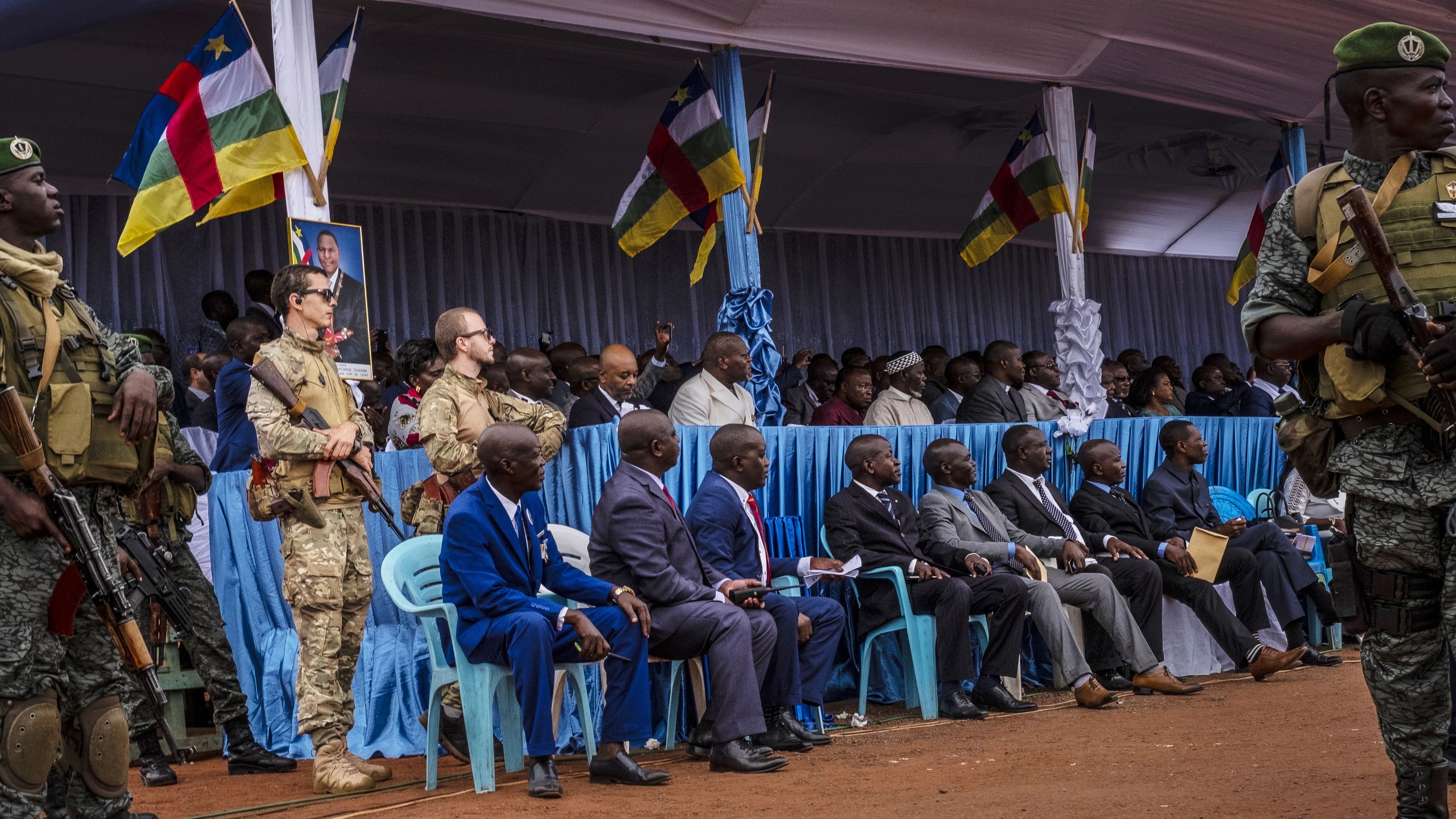
Wagner mercenaries guarding the president and other high-ranking attendees in Bangui, capital of the Central African Republic, in 2019.
Credit: New York Times
The future of the Wagner private military company in Africa, one of the force’s main areas of operation, with thousands of soldiers on the ground, would be thrown further into uncertainty without Yevgeny Prigozhin as its leader.
Wagner operatives provide security to autocratic African leaders seeking to stay in power, as well as boots on the ground to fight rebels or extremist groups alongside underequipped national armies. Wagner also provides misinformation tactics, which have given the group’s members a veneer of popularity even as they have been accused of widespread human rights abuses, including torture, mass killings and rape, in the countries where they operate.
Prigozhin was listed as a passenger on a plane that crashed Wednesday in Russia, killing everyone on board, the nation’s aviation authorities said.
His aborted mutiny in Russia in June, which led Wagner forces to seek refuge in Belarus, had already raised doubts about the group’s operations in Africa, where it has developed a vast business empire and network of relationships with African leaders. But hours after that rebellion was called off, officials with the Russian Foreign Ministry phoned the president of the Central African Republic to assure him that the thousands of Wagner fighters deployed in his country would stay.
Besides the Central African Republic, Wagner’s launchpad in Africa, Wagner mercenaries are known to be deployed in Libya, Mali and Sudan.
In the Central African Republic, Wagner soldiers recently helped the authorities organize a referendum to rewrite the Constitution to allow the president to stay in power indefinitely.
In Mali, about 1,500 operatives have been deployed to fight off an Islamist insurgency, and in recent days they have been on the front line of a nascent conflict against rebel groups in the north of the country. Prigozhin appeared in an unverified recruitment video this week that several experts on the group said had been recorded in Africa, most likely in Mali.
An adviser to the Central African Republic’s president couldn’t be reached immediately on Wednesday, and a spokesperson for the Malian military didn’t respond to requests for comment.
For years, questions have swirled around Wagner’s ambitions in Africa and where the group might expand next, especially in countries where military officers seized power.
After the coup in Niger last month, some Western and West African governments feared the country could become Wagner’s next priority. Prigozhin praised the coup in a voice message on Telegram and offered the group’s services to Niger’s new leaders.
A top civilian official representing the junta told The New York Times last week that to his knowledge, the new authorities had no intention of partnering with Wagner.